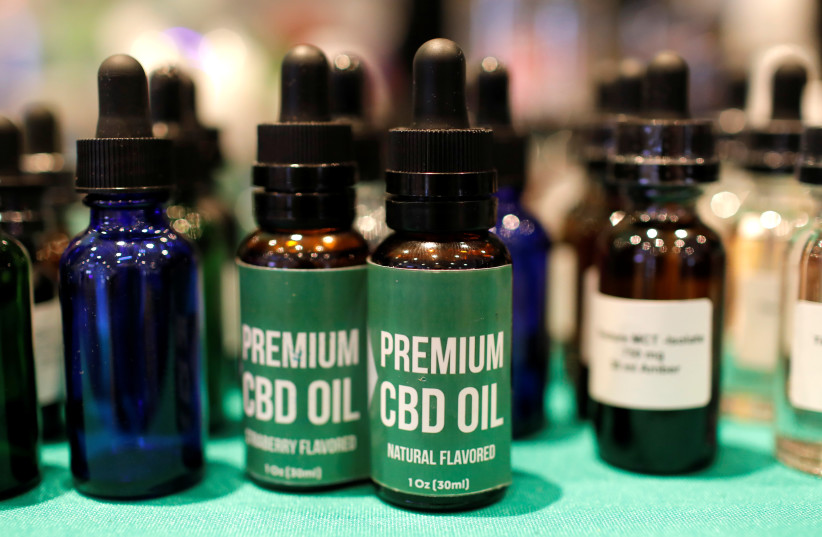Israel will no longer include cannabidiol (CBD) in its Dangerous Drug Ordinance, allowing for it to be used and imported into Israel, the Health Ministry said Monday, following several months of research into the substance.
How was the decision to allow CBD reached?
CBD is the second-most prevalent active ingredient in marijuana, accounting for 40% of the plant’s extract, and does not produce psychotropic effects. It can be taken or applied in a variety of ways, including soft or hard capsules, creams and oils.
Israel had considered removing CBD from its list of dangerous drugs several times before, but the move had never been implemented. Last December, Health Minister Nitzan Horowitz and Health Ministry Director-General Nachman Ash said they were establishing a committee to look into the implications of removing substances or products containing CBD from the list.
The committee, headed by Assuta Medical Centers chairman Prof. Joshua Shemer, began its work on December 21. It recently concluded its research and presented the findings to the Health Ministry for publication.
The committee was established with the goal of mapping existing legislation and policies around the world regarding the use and regulation of CBD and applied the information in examining how to implement similar policies within Israel.

It then began to determine the required conditions for legalized CBD, such as the type of products, the quality and quantity of the raw materials used and the concentration levels within the products. The committee examined existing information regarding the safety of such products for general public use, a move that allowed it to determine the risk-management steps that would be needed in legalizing CBD production and use within Israel.
The committee recommended to the Health Ministry that CBD be removed from the list of dangerous drugs, provided the maximum concentration does not exceed 0.2%. Horowitz adopted the recommendation but adjusted the maximum concentration level to 0.3% before doing so.
No CBD cookies... yet
However, the committee concluded that there is a lack of sufficient evidence regarding the safety of CBD for use in food and cosmetic products. Therefore, no CBD products will be approved for use as an ingredient in food, dietary supplements or cosmetic products for at least the next two years. This decision will be reviewed and reconsidered at the end of the time period, the Health Ministry said in a report.
During the next two years, several steps will be taken to ensure that CBD can be incorporated safely into the food and cosmetics industry. These steps will include additional research in the field of CBD usage and safe practices needed to incorporate it into food and cosmetics.
In the meantime, a supervisory and enforcement system for cosmetics and food should be established in light of the widespread use and popularity of CBD products among the public, including procurement of unsupervised products over the Internet, the report said.
A "required" first step in regulating cannabis
“There are many prejudices in everything related to the cannabis plant,” Horowitz said regarding his ministry’s decision. “We begin today with the course required for the regulation of the cannabis plant and finally release a component on which there is a broad consensus that should not be defined as a dangerous drug – the CBD component.”
“For several years now, Israel has been lagging behind advanced countries in the world in this matter, and it continues to incriminate and prevent the use of components that are not dangerous to public health,” he said. “We will now close that gap.”
Calling the decision “the required first step, and certainly not the last, in regulating the cannabis market and changing the overall attitude toward its effects and benefits,” Horowitz reassured the public that Israel, like other advanced countries, will soon allow the marketing and sale of consumer products that contain CBD.
“We are pleased to adopt the recommendations of the committee headed by Prof. Shemer, whose main purpose is to remove CBD from the Drug Ordinance,” Ash said. “This will allow for a simpler engagement with the material and its derivatives in preparation for expanding its use in the future.”
